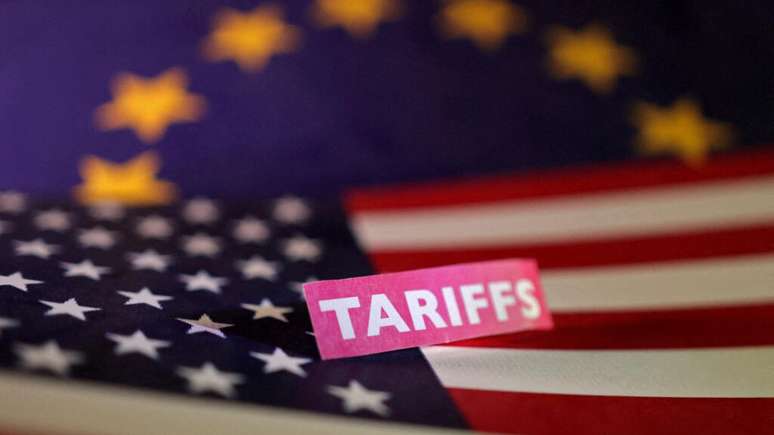The new 15% tariff regime imposed by the President of the United States Donald Trump on most European products (7) came into force on Thursday. How will this influence the economy of the European Union? The industries of the most affected by rates will be less competitive in the United States and complain that they will have to give a lot in exchange for little. The new commercial agreement is causing different interpretations on both sides of the Atlantic, and this could lead to a tariff climbing.
The new 15% tariff regime imposed by the President of the United States Donald Trump on most European products (7) came into force on Thursday. How will this influence the economy of the European Union? The industries of the most affected by rates will be less competitive in the United States and complain that they will have to give a lot in exchange for little. The new commercial agreement is causing different interpretations on both sides of the Atlantic, and this could lead to a tariff climbing.
Letícia Fonseca-SounderRFI correspondent in Brussels
The price to pay for the alleged transatlantic stability will have a direct impact on the industries of the European Union. Block companies are worried and continue to calculate the negative effects that the 15% rates imposed by the President of the United States Donald Trump could cause. Remember that steel and aluminum face a separate rate of 50%. The consequences of the rate will not be immediate, but heard in the medium term. The industries will be damaged by the fall of the exports of their products and, of course, will have reduced profits.
One of the first negative impacts should be an increase in unemployment. The products of the European Union sold in the United States will be more expensive, less competitive, that is, reduced and cutting thousands of jobs in the block.
In France, the Cosmetics Giant L’Oréal, which generates almost 40% of its volume of the United States, and the Sanofi pharmaceutical multinational, have reported the intention to transfer part of their productions to American soil to prevent high rates.
This movement could have a double effect on employment, explains Belgian economist Bruno Colmant, “if the European Union industries change part of their productions in the United States, US workers will replace European workers and this will contribute to the deindustrialization of Europe”, he says.
Higher energy bill
The energy aspect of the pact between the United States and the European Union is quite serious. The agreement provides that Europeans acquire $ 750 billion in American energy products – gas, oil and nuclear energy – in the next three years. Brussels tries to give an optimistic impression by stressing that there will be less dependence on energy on Russia or Arab countries.
However, experts warn that Europeans will pay more for energy if the United States decide to increase prices in the future. In addition, enormous American gas and oil purchases will be able to compromise EU climatic objectives. In short, the money of European consumers who could be invested in the energy transition will be sacrificed in favor of the acquisition of American fossil fuels, highly polluting sources.
Wednesday (6), Trump has threatened to apply 35% rates if the European Union does not maintain the 600 billion dollar investment promise in US companies. However, the European Commission is unable to make investments on behalf of the private sector. Just before midnight, Trump declared on social networks that billions of dollars would start entering the United States following rates.
Extension and challenges
While Brussels has just announced the suspension of commercial retaliation against US rates for six months, European governments face challenges and discuss how to limit the damage to the tariff war.
Analysts believe that the reasoning to Brussels is to prevent Trump from withdrawing from the transatlantic military alliance, born and to end Ukraine’s support.
Germany, the largest European economy, is one of the blocking countries most affected by the new rates of 15%. The German government is forced to rethink its economic model based on export. To have an idea of the size of the damage, only in the automotive sector, it is estimated that about 300,000 jobs can be influenced by the rate.
This week Trump spoke of up to 250% of European pharmaceutical export rates, a few days after ensuring that these same rates would be 15%. If the new promise of the President of the United States is brought to the letter, Ireland will be in trouble. In addition to hosting most of the big names in global pharmaceutical trade, the largest volume of Irish exports to the United States are pharmaceutical products.
Source: Terra
Rose James is a Gossipify movie and series reviewer known for her in-depth analysis and unique perspective on the latest releases. With a background in film studies, she provides engaging and informative reviews, and keeps readers up to date with industry trends and emerging talents.






